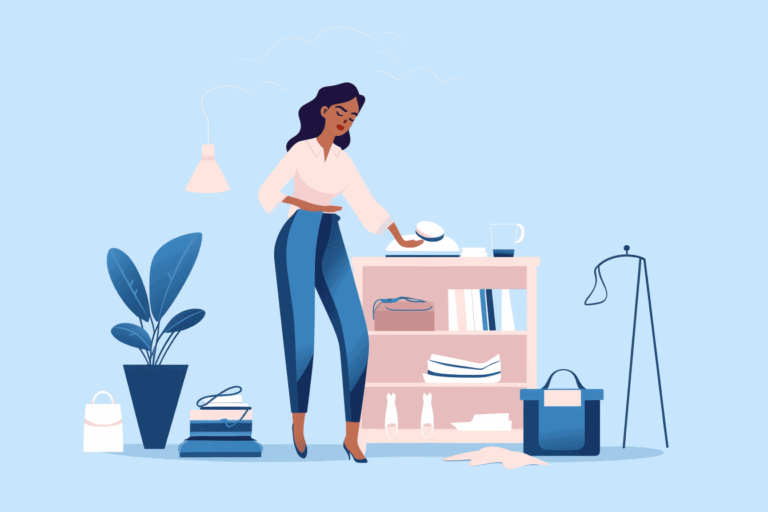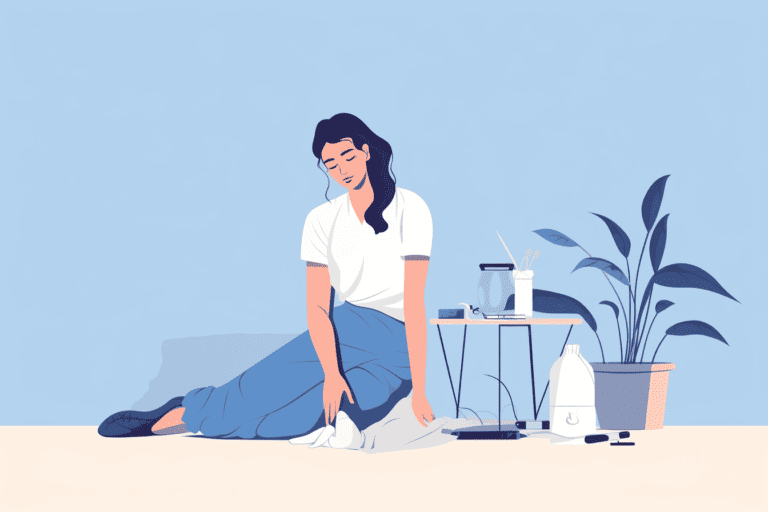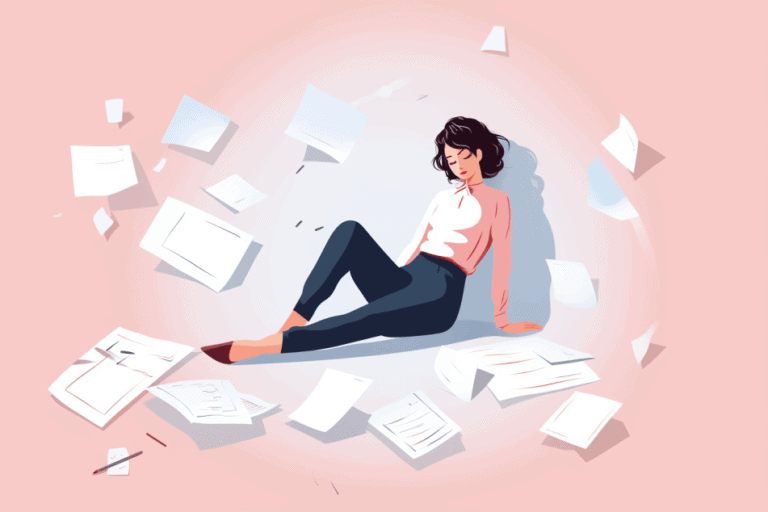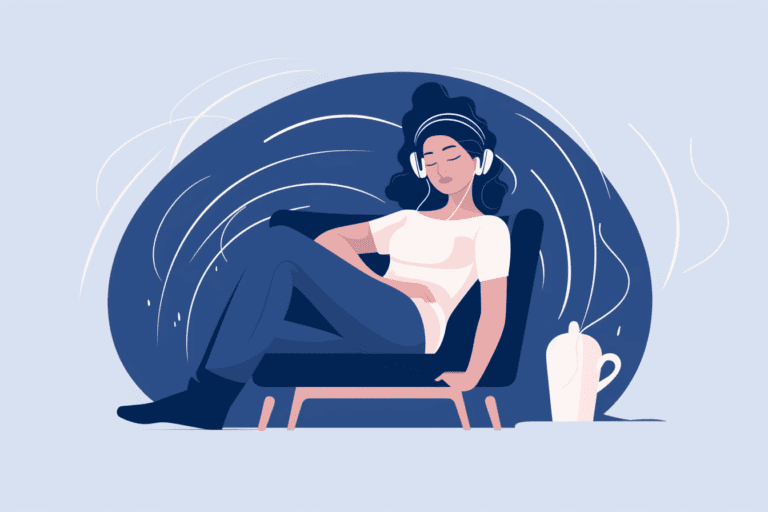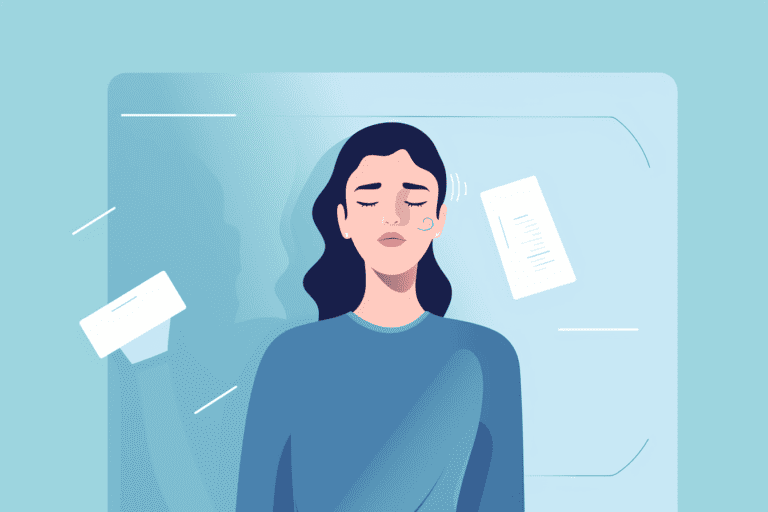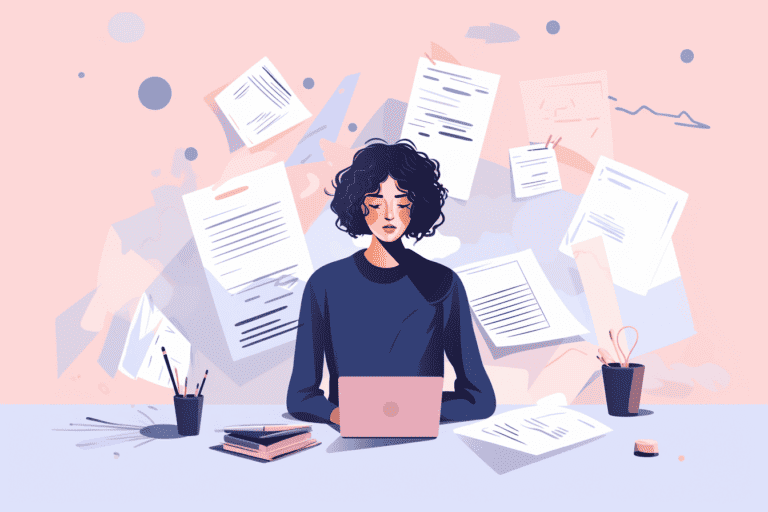Why Does Coffee Make Me Sleepy ADHD
Have you ever wondered why that cup of coffee, which is supposed to perk you up and keep you alert, sometimes leaves you feeling strangely tired?
For some of us with ADHD, there’s just something irresistible about the taste of coffee.
That rich aroma, the warm mug between your hands, or the simple pleasure of a morning coffee ritual—it’s hard to give it up.
Yet, it’s not uncommon to hear, “Why does my caffeinated drink make me feel sleepy?” This paradoxical reaction can be confusing and quite the mood dampener!
In this blog post, we’ll explore why caffeine can sometimes make you feel sleepy, particularly brain caffeine, if you have ADHD.
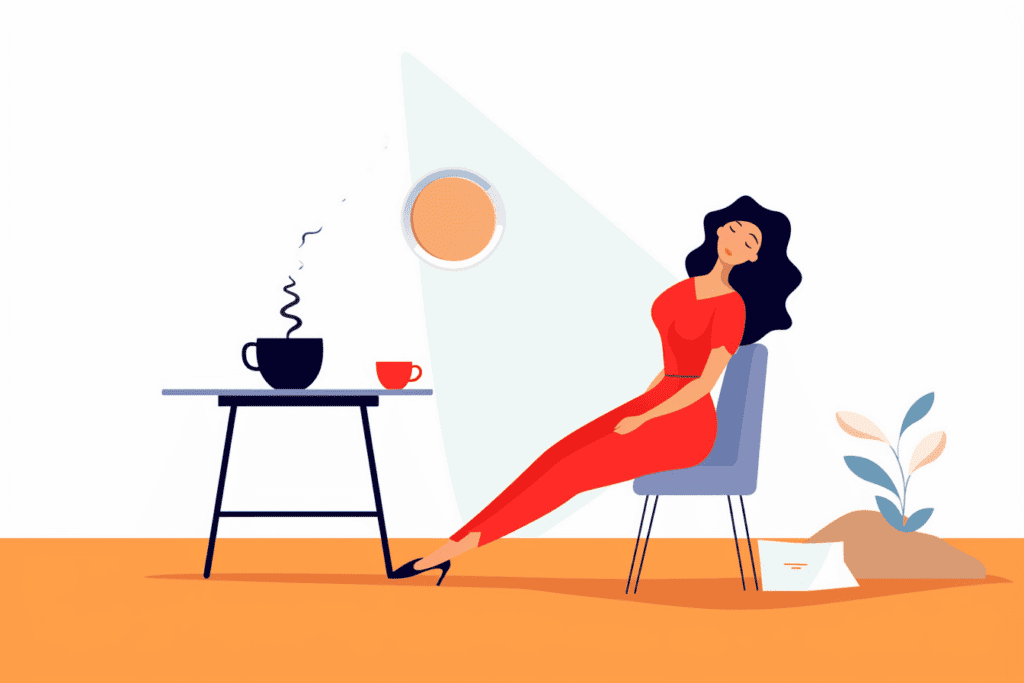
Why do some ADHD adults feel sleepy after they drink coffee?
Most of us know coffee as that magical brew that wakes us up and sharpens our focus.
But some people with ADHD have a completely different experience. Instead of feeling more alert after drinking coffee, they actually feel more sleepy.
It sounds strange, right? So, what’s going on here?
To understand this, we have to take a look at how our brains work, how neurotransmitters play a role, and how each individual’s brain is unique.
How does caffeine keep us awake? A simple explanation
Caffeine is a common ingredient in many of our favorite drinks, like coffee and tea, soda, and even chocolate!
It has an effect on our brain that helps us to feel more alert and focused. How does it do this?
Well, normally when we’re awake, a neurotransmitter called adenosine builds up in our brain, making you feel tired. In other words, adenosine tells our brain when it’s time to go to sleep. But when we drink something with caffeine in it, the caffeine blocks the adenosine from doing its job. This means we stay alert and awake longer.
It’s like caffeine is telling adenosine, “Hold on, we have more to do today!”
The ADHD Neurobiology Twist
Now, here’s where things get a bit more complicated.
You see, ADHD (attention deficit hyperactivity disorder) isn’t just about being hyperactive or having a hard time paying attention. It’s actually linked to how our brains handle dopamine.
Dopamine is often called the “reward neurotransmitter,” because it helps us feel good when we accomplish something.
But in people with ADHD, the brain’s dopamine system works a little differently. They have variations in their dopamine transporters. And because of these variations, people with ADHD have a unique setup in their dopamine system, which affects how they stay focused and motivated.
ADHD and Dopamine Dysregulation
Let’s illustrate this with an example.
Imagine your brain as a bustling city, with neurotransmitters like dopamine serving as delivery trucks, carrying feel-good packages from one part of the city to another.
But people with ADHD have a unique set-up – They’ve got more of these dopamine trucks (or “dopamine transporter density” in scientific terms) than average.
The increased amount of dopamine trucks come and whisk away the feel-good packages before the party has even started (According to The Gulf Bend Center). That’s why individuals with adult ADHD might not feel the usual dopamine-induced satisfaction after completing a task, which can make motivation and focus a challenge.
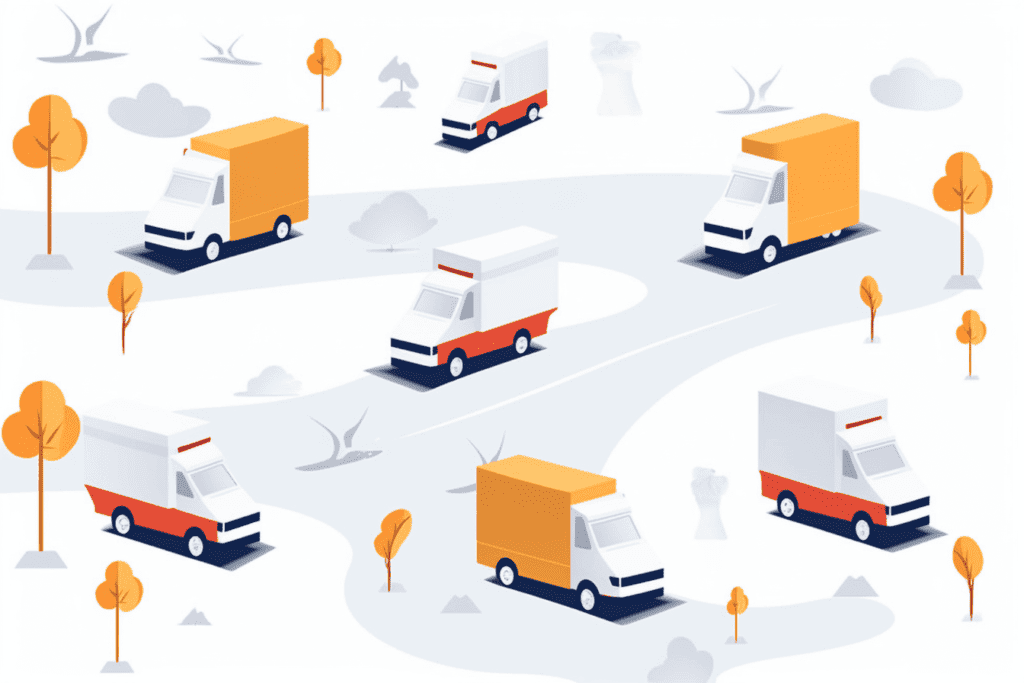
How Can Caffeine Affect ADHD
Now, imagine throwing caffeine into the mix.
For most people, caffeine can help clear up brain fog and enhance cognitive performance by increasing blood flow. For most healthy adults, moderate caffeinated drinks consumption can even contribute to brain health, when paired with healthy meals and good sleep.
But for ADHD people, caffeine adds another layer of complexity.
It triggers an increase of dopamine in the brain, which could causes a traffic jam that disrupts the usual flow of dopamine trucks in ADHD’s dopamine city.
This results in an overabundance of dopamine hanging around in some parts and a scarcity in others, triggering an imbalance that may exacerbate ADHD symptoms.
As per a study conducted by The National Institute of Mental Health, caffeine can potentially worsen ADHD symptoms, making it even more challenging for individuals to focus and manage their impulsiveness.
Therefore, while a cup of joe might seem like a good pick-me-up, for those with ADHD, it could be adding fuel to an already volatile situation.
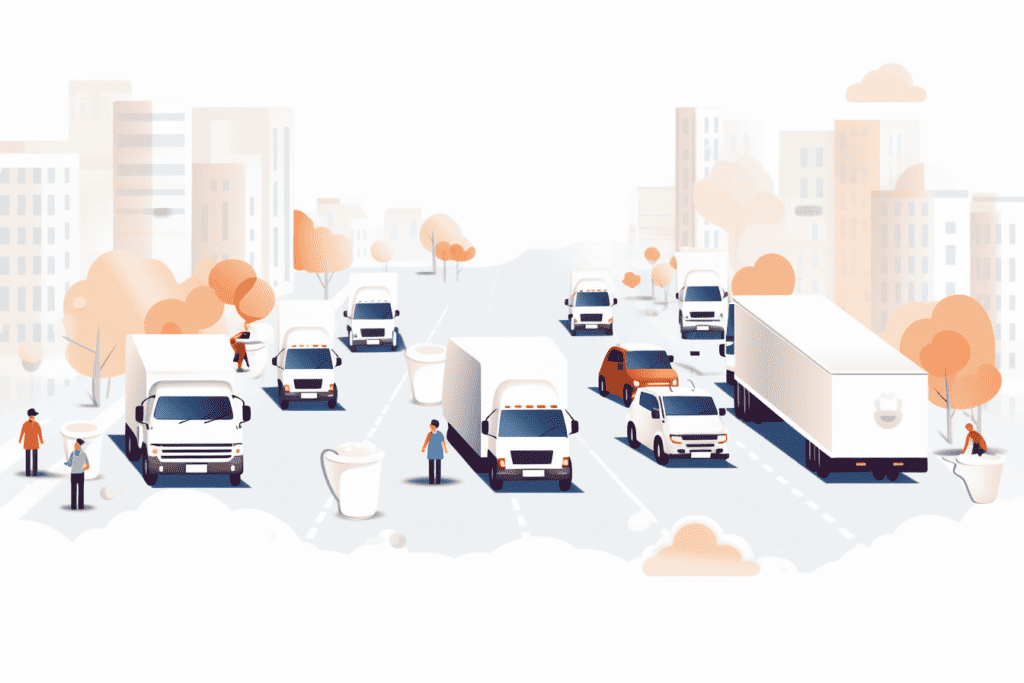
The Sleepiness Paradox
Now we arrive at the heart of the paradox: why do some ADHD adults feel sleepy after consuming coffee?
It’s common to drink coffee or energy drinks when we’re feeling sluggish, but it’s vital to remember that caffeine is a loan, not a gift. After the initial burst of energy, our brain will demand repayment in the form of rest.
For people with ADHD, this can begin a vicious cycle. They may consume caffeine to increase focus and stay awake, but the resulting sleep disturbances can exacerbate their ADHD symptoms, leading to an increased reliance on caffeine. It can become a hamster wheel that’s hard to exit.
Caffeine’s effects can last anywhere from 4 to 6 hours, but its half-life—the time it takes for the body to eliminate one-half of the caffeine—can extend up to 10 hours. So, consuming caffeine late in the day can lead to difficulty falling asleep at night, further disrupting the sleep cycle.
Finding Balance: Manage Your Caffeine & Your ADHD
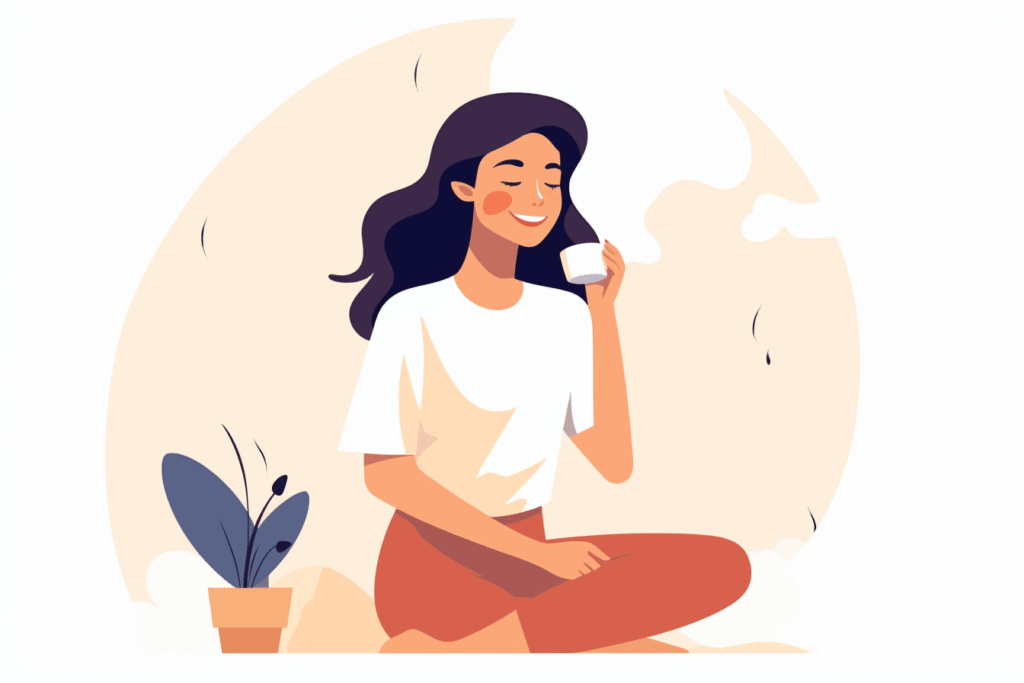
How to Manage Your Caffeine Consumption
Striking the right balance between caffeine use and managing your ADHD symptoms requires a thoughtful approach.
You don’t have to give up your favorite cup of coffee completely, but it’s important to know how and when to enjoy it.
Moderation is the key here – too much caffeine can disrupt your sleep, which can make your ADHD symptoms worse. Think of it like finding the perfect balance on a seesaw – neither side should hit the ground.
Tips for Better Caffeine Consumption:
- Mindful Moderation: Enjoy your caffeine in moderation. Too much can lead to jitteriness and sleep problems, which can affect your ADHD symptoms.
- Watch the Clock: Caffeine’s effects can last for hours. Be mindful of when you consume it. Avoid caffeine in the late afternoon or evening to ensure it doesn’t disrupt your sleep.
- Sleep Check: Pay attention to how caffeine impacts your sleep quality. If you’re having trouble falling asleep or staying asleep, your caffeine intake could be a contributing factor.
- Daily Limit: On average, it’s recommended to limit caffeine intake to around 400 milligrams per day, which is roughly equivalent to four cups of brewed coffee.
- Hydration Matters: Stay hydrated. Drinking water can help balance the effects of caffeine and prevent dehydration.
- Listen to Your Body: Everyone’s tolerance to caffeine is different. Pay attention to how your body reacts and adjust your caffeine intake accordingly.
- Consult Your Doctor: If you’re uncertain about how much caffeine is right for you, talk to your doctor. They can provide personalized advice based on your health and ADHD management.
How to Avoid Caffeine Crash
To avoid the dreaded caffeine crash, here are some practical tips that you can start implementing today:
1. Gradual Intake and Timing: Spread out your caffeine consumption by having a cup in the morning and another in the early afternoon to avoid energy crashes caused by sudden spikes and drops.
2. Hydration and Healthy Snacking: Stay hydrated with water alongside your caffeinated drinks and pair caffeine with nutritious snacks to maintain steady energy levels.
3. Mindful Portions and Listen to Your Body: Limit caffeine to about 3-4 cups of coffee a day. Pay attention to any jitters or anxiety, and prioritize balanced energy throughout the day.
Can I Combine Caffeine & My ADHD Medications?
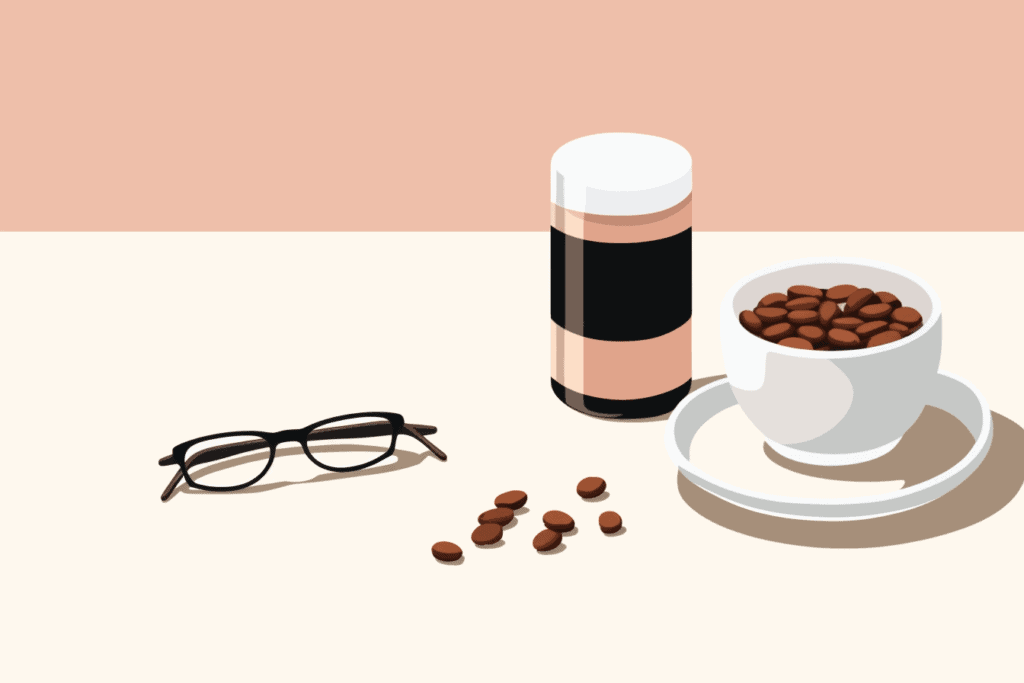
When you have ADHD and you take your medication, adding a cup of coffee into the mix might create a stronger effect. This is known as synergy.
Synergy is like a power boost that happens when caffeine teams up with your ADHD meds, like Adderall (amphetamine and dextroamphetamine). The result? Both the benefits and side effects of your medicine might feel more intense.
While prescription medications are often used to treat ADHD, combining caffeine and ADHD medication might not always yield positive results due to the various ways caffeine affects ADHD brains.
So should you stir some caffeine into your daily medication routine? Well, you should always talk to a doctor first. They can guide you based on the latest research and your personal medical situation.
Why do different people react differently to caffeine?
Everyone’s response to caffeine is as unique as they are, largely due to the distinctiveness of each person’s neurobiology.
What does this mean? Well, our brains are wired differently, causing caffeine to affect each of us in unique ways. Some of us might feel more alert and focused after a cup of coffee, while others might feel jittery or even drowsy.
This variance can be attributed to several factors. Genetics plays a huge role – your DNA might make you more or less sensitive to caffeine.
Moreover, your caffeine tolerance, built up over time, can influence how strongly you feel its effects. Lastly, the subtype of ADHD that you have can also determine your body’s response to caffeine. The interplay of these factors makes caffeine’s impact a highly individualised experience.
Also read: Why is My ADHD Worse on Some Days
FAQ
Here are some frequently asked questions to sum up what we’ve just talked about:
Q1: Why does the ADHD brain react differently to caffeine?
Individuals with ADHD often have a higher density of dopamine transporters, affecting their dopamine levels. Caffeine’s interaction with dopamine can lead to imbalances in different brain regions, causing fatigue instead of alertness.
Q2: Can caffeine help with ADHD symptoms?
While caffeine might provide a temporary boost in alertness, it’s not a substitute for proper ADHD treatment. It’s best to discuss any changes with your healthcare provider.
Q3: Should I eliminate caffeine altogether if I have ADHD?
Not necessarily. While some individuals with ADHD find that reducing caffeine intake helps manage symptoms, others might still enjoy the occasional cup. It’s all about finding what works best for you and your body’s response.
Q4: How can I manage caffeine consumption to avoid feeling tired?
Pay attention to your body’s signals. Limit caffeine intake, especially in the afternoon, as caffeine’s effects can last for hours. Opt for balanced meals and proper sleep to support your overall energy levels.


